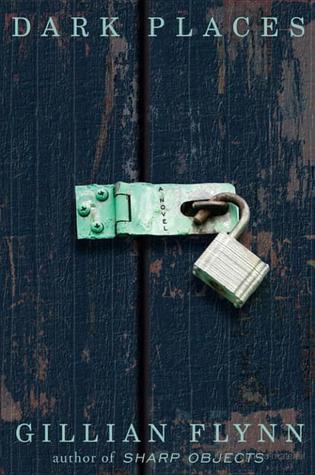The Days were a clan that mighta lived longBut Ben Day's head got screwed on wrongThat boy craved dark Satan's powerSo he killed his family in one nasty hourLittle Michelle he strangled in the nightThen chopped up Debby: a bloody sightMother Patty he saved for lastBlew off her head with a shotgun blastBaby Libby somehow survivedBut to live through that ain't much a life--SCHOOLYARD RHYME, CIRCA 1985
In Dark Places, Libby Day is the semi-famous lone survivor of the brutal massacre of her family ("lone" if you consider that the 7-year-old Libby's eyewitness testimony pegged her 15-year-old brother, Ben, as the killer). She is "semi-famous" in the sense that her story made international news and for 24 years she was able to live off the donations of well-wishers and the meager revenue from a memoir that was ghostwritten for her. Listless and full of fury still ( Draw a picture of my soul, and it'd be a scribble with fangs), Libby cannot imagine how to support herself until an offer falls into her lap: The Kill Club -- a bunch of murder groupies who hold conventions to compare theories, role play, and buy commemorative merchandise -- offers to pay Libby to meet with people from her past, and hopefully, exonerate and free her brother, Ben, from prison.
The book is skillfully told from shifting points of view, first from Libby today, and then from her mother's and brother's perspectives on the day before the murders, doling out just enough information to advance the plot without giving away too much at once. The tension is taut as the oddball Ben, full of hormones and rage towards his hopeless mother and annoying sisters, desperately tries to fit in with some older kids who dabble in drugs and devil worship. Their mother, Patty, divorced and struggling not to lose the family farm, spends the day chasing down her missing son and being confronted with horrifying accusations about his behaviour. The noose tightens as the hour of the murders approaches, and when the crimes finally occur…well, a person would need to read the book to find out.
This was the first Gillian Flynn book that I read absolutely cold, having had nothing spoiled for me in advance, and it was a rewarding experience -- the story was interesting and the mystery was satisfying. As I was the same age as Diondra in 1985, the timeframe was familiar to me and well captured: I certainly remember Willie Nelson and Farm Aid trying to save family farms; the fear over Satan worship and backward-masking in heavy metal songs; rumours of cattle mutilation; girls with spiral curls and too-dark foundation; and false memories implanted in children by well-meaning social workers. Like in the other Flynn novels, the main character in Dark Places is a flawed and conflicted woman who, while not exactly likeable, was in this case at least sympathetic:
I totally believe our blood is bad. I feel it in me. I've beaten the shit out of people, Ben. Me. I've busted in doors and windows and…I've killed things. Half the time I look down, my hands are in fists.
In addition to the well-crafted structure of this book, there was much interesting writing:
The voice was lovely, all cigarettes and milk.
Coffee goes great with sudden death.
The Day women were the definition of mob mentality. And here they were on a farm with plenty of pitchforks.
If I had to rank my Gillian Flynn reading experience, I'd put this book first, followed by Gone Girl and then Sharp Objects, and am looking forward to whatever slithers out of her brain next.

